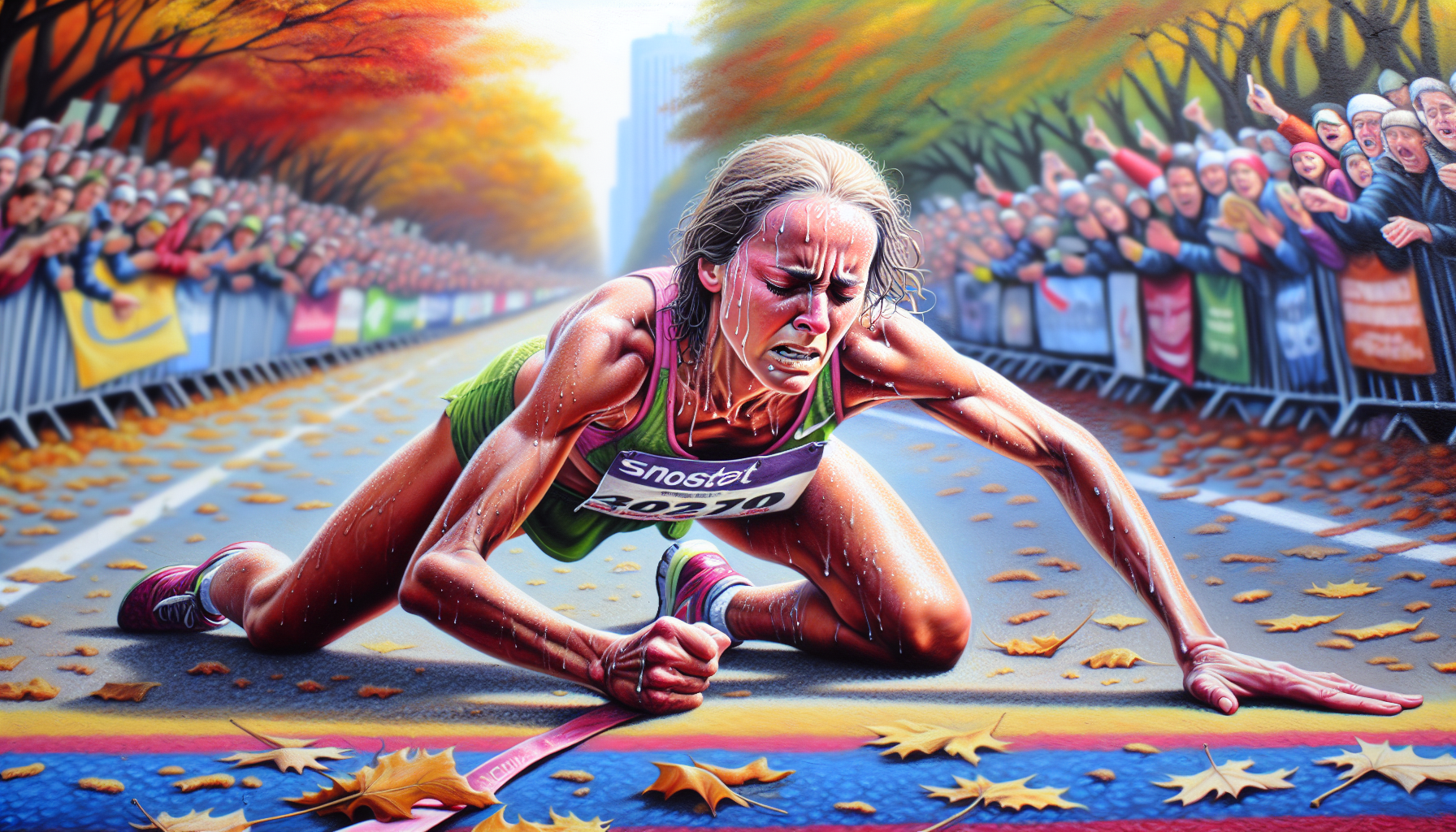Behind the Numbers: The Gender Pay Gap in UFL Salaries

The UFL has made strides in promoting women’s participation in sports, but the financial recognition of female athletes remains a contentious topic. Recent data shows that female players in the UFL earn, on average, significantly less than their male counterparts. For instance, while male players might earn an average salary of $150,000, female players often find themselves at around $80,000, despite comparable performance levels. This disparity raises questions about the value placed on female athletes' contributions to the league. These salary differences are not merely numbers; they reflect a systemic undervaluation of women's sports and the athletes who compete at elite levels. The UFL's structure may perpetuate this inequality, leading to broader ramifications for the future of women's sports.
The Factors Contributing to the Gender Pay Gap
Several factors contribute to the gender pay gap in the UFL. One prominent reason is the historical context of women's sports, which have been marginalized in favor of men's sports for decades. This legacy has resulted in less sponsorship and media coverage for female athletes, directly impacting their visibility and marketability. Consequently, teams may be less inclined to invest in women's salaries, perpetuating a cycle of inequality. Additionally, audience engagement plays a crucial role in salary structures. Male sports often draw larger crowds and generate higher revenue from ticket sales and merchandise. As a result, teams may allocate more funds to male players, further widening the pay gap. However, this viewpoint overlooks the potential for growth in women's sports; increased investment and support could lead to higher audience engagement, creating a win-win situation for both players and teams. If the UFL were to prioritize marketing female athletes, it could transform audience perceptions and, by extension, financial outcomes.
Case Studies: The Impact of Gender Pay Disparity on Female Athletes
To illustrate the real-world implications of this pay gap, we can look at the stories of specific female athletes in the UFL. Consider a standout quarterback who leads her team to consecutive playoff appearances. Despite her achievements and contributions to the team's success, her salary remains disproportionately lower than that of her male peers. This disparity not only affects her motivation but also raises concerns about her long-term career prospects. If female athletes perceive that their efforts are undervalued, they may be less likely to commit fully to their sports careers. Moreover, the financial strain on female athletes can lead to challenges in balancing their sports careers with other obligations, such as education or family responsibilities. This situation can discourage young women from pursuing careers in professional sports, ultimately stunting the growth of women's leagues and the opportunities available to future generations. The narrative of female athletes being forced to choose between their passion and financial stability is detrimental to the sport as a whole.
Addressing the Gender Pay Gap: The Path Forward
Addressing the gender pay gap in the UFL requires a multifaceted approach. First, increased media coverage and sponsorship opportunities for women's sports are essential. As visibility grows, so too will the audience, which can result in higher revenue and, subsequently, better salaries for female athletes. The UFL can take cues from other leagues that have successfully invested in women's sports, creating a more equitable landscape. Second, league initiatives focused on equitable pay structures are crucial. Implementing policies that ensure fair compensation based on performance rather than gender can help bridge the gap. This step would also signal to young athletes that their efforts and talents are valued equally, regardless of gender. By establishing clear benchmarks and performance metrics, the UFL can create a culture of accountability and fairness.
The gender pay gap in UFL salaries is a reflection of broader societal issues related to the treatment and valuation of female athletes. While the league continues to evolve, it is vital to address these disparities head-on to foster an environment of equality and inclusivity. By recognizing the contributions of female athletes and committing to equitable pay practices, the UFL can pave the way for a more just future—one in which all athletes, regardless of gender, are celebrated and compensated fairly for their talents. As fans, organizations, and stakeholders advocate for change, the hope is that the next generation of athletes will not have to battle the same inequalities that persist today. The UFL has the opportunity to be a leader in this movement, showcasing the potential of women's sports and influencing other leagues to follow suit. Ultimately, rectifying the gender pay gap is not just about numbers; it is about respect, recognition, and the right to compete on equal footing.
Sports Marketing Manager
Sports marketing agencies, professional sports teams, and sports leagues (e.g., the UFL, WNBA)
Core Responsibilities
Develop and implement marketing strategies to promote female athletes and women's sports leagues, particularly in the UFL.
Manage sponsorships and partnerships to enhance visibility and funding for women's sports initiatives.
Analyze market trends and audience engagement metrics to optimize promotional campaigns.
Required Skills
Strong understanding of digital marketing and social media platforms.
Excellent communication and negotiation skills to secure sponsorship deals.
Experience in market research and data analysis.
Diversity and Inclusion Coordinator
Sports leagues, athletic associations, and nonprofit organizations focused on gender equity in sports
Core Responsibilities
Develop and implement strategies to promote gender equity and diversity within the UFL and its member teams.
Conduct training sessions and workshops to raise awareness about gender issues and inclusivity in sports.
Collaborate with athletes, teams, and stakeholders to create programs that support female athletes' advancement.
Required Skills
Strong interpersonal and communication skills to effectively engage diverse groups.
Knowledge of diversity best practices and how to apply them in sports environments.
Experience in program development and community outreach.
Sports Data Analyst
Professional sports teams, sports analytics firms, and sports technology companies
Core Responsibilities
Analyze player performance data to provide insights on the contributions of female athletes in the UFL.
Create reports that highlight discrepancies in salary versus performance metrics across genders.
Collaborate with coaching staff to enhance team strategies based on data findings.
Required Skills
Proficiency in statistical analysis software (e.g., R, Python, SQL).
Strong analytical and critical thinking skills to interpret complex data sets.
Experience in sports analytics or related fields.
Athlete Relations Manager
Sports leagues, athletic departments, and player associations
Core Responsibilities
Serve as a liaison between female athletes and league management to address concerns related to pay equity and career development.
Develop programs that support the professional growth and visibility of female athletes in the UFL.
Organize events that promote female athletes and foster community engagement.
Required Skills
Strong conflict resolution and negotiation skills to advocate for athlete rights.
Excellent organizational skills to manage multiple initiatives simultaneously.
Experience in sports management or athlete representation.
Sports Journalist/Content Creator
Sports media outlets, online publications, and content marketing agencies
Core Responsibilities
Write articles and create multimedia content focusing on gender equity in sports and the achievements of female athletes in the UFL.
Conduct interviews with athletes, coaches, and industry experts to highlight stories that promote women's sports.
Utilize social media platforms to share content and engage with audiences about gender pay disparities.
Required Skills
Strong writing and storytelling abilities with a focus on sports journalism.
Proficiency in multimedia production and editing tools.
Understanding of the sports industry, particularly issues related to gender equity.


